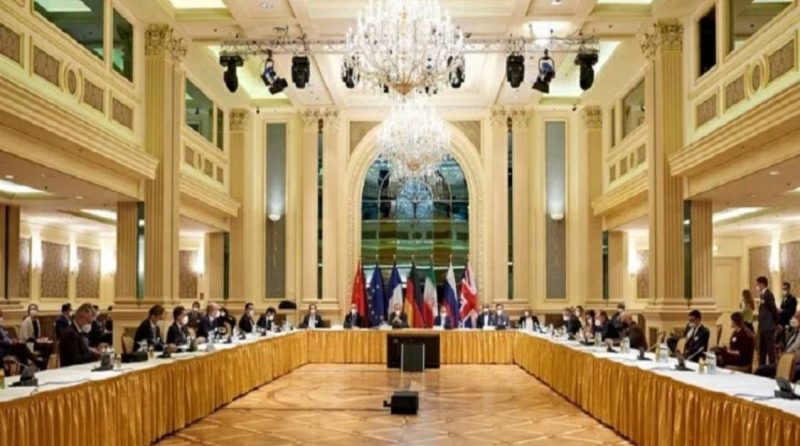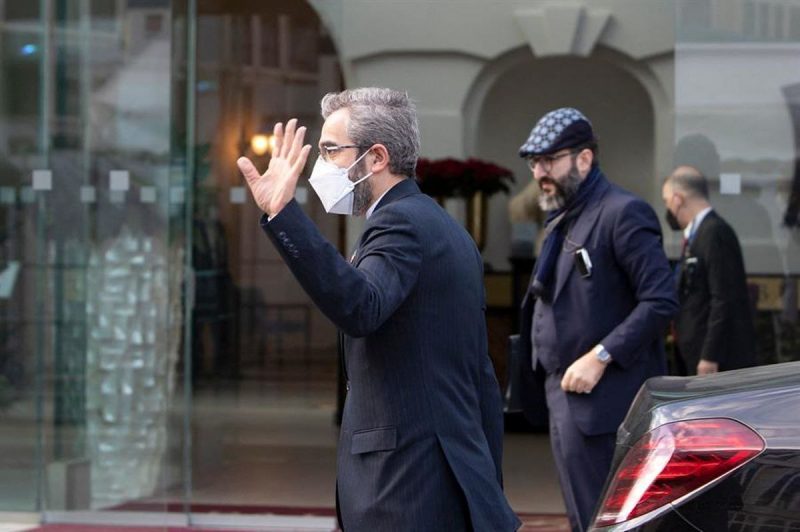Who is to blame for the failure of the JCPOA negotiations?
The mountain roared and gave birth to a mouse. The only achievement of this fierce group so far has been nothing. This fierce group was a name given by a reformist political activist to the nuclear negotiation team because this team claimed it would force the West to retreat from its demands by giving fewer concessions. Meanwhile, from the very beginning, experts warned that if an agreement under the name of JCPOA was reached, it was because the nuclear team of Rouhani’s government knew what it was doing, and it is unlikely that Raisi’s nuclear team, especially Amir-Abdollahian and Bagheri Kani, can reach a better agreement than the JCPOA.
It is likely that neither Amir-Abdollahian nor Bagheri Kani felt the need to read the set of books titled ‘The Untold Secret’ during this time, but perhaps after finishing the negotiations and for the sake of learning from experience, it would be good to recommend to them reading about the nuclear negotiation process of the previous government.
In the hope of the JCPOA’s failure
Raisi and his conservative supporters, whether when they were out of power or after they took over elected institutions, have repeatedly welcomed the end of the JCPOA. Although after the negotiation file came into their hands, their most important demand was the return of the US to the JCPOA. Raisi’s conservative supporters, towards the end of Rouhani’s government, passed a resolution that blocked the path to reviving the JCPOA during Rouhani’s administration.
Hassan Rouhani has repeatedly referred to this resolution afterwards and said he wished they hadn’t been caught up in it so that the sanctions would have been lifted. Raisi himself has said many times that if the negotiations fail, we will continue with our economic policies. He has repeatedly said that we have no problem selling oil and no problem with essential goods reserves, and all of this means we are not serious about concluding the negotiations as the key to solving the sanctions, and we are ready to accept the consequences.
Without a roadmap
This is while experts believe that Iran’s economy is not in a position to want or be able to bear the burden and cost of the official failure of nuclear negotiations and the non-revival of the JCPOA. Officially announcing the failure of negotiations and the death of the JCPOA, in addition to having direct and immediate impacts on economic and livelihood conditions and causing uncontrollable inflation, will also have destructive psychological effects on public opinion.
Most importantly, there is no alternative to the JCPOA. From the perspective of experts, the government that has come to power had no plan for foreign policy, especially regarding the JCPOA revival negotiations. Therefore, it has no alternative solution in the face of the potential failure of negotiations to solve the country’s economic issues.
Mahmoud Abbaszadeh, a member of the National Security and Foreign Policy Commission, said our foreign diplomacy had no roadmap for negotiations. Given the superior position that the Islamic Republic had with good cards for negotiations, I believe we could have advanced the negotiations better to gain concessions and results. Why we couldn’t achieve results is because our foreign diplomacy lacked a precise roadmap, and I still believe we don’t have one today.
The situation is so bad that even Fereydoun Abbasi, head of the Atomic Energy Organization under Ahmadinejad’s government and a critic of Rouhani’s nuclear team, has recently voiced his concerns. He recently said that no written text has been provided to us to see what the result of two hours of negotiations was. Today, analyses and statements are based on individuals’ information or foreign media reports, which are sometimes incorrect.
Factional interests over national interests
Meanwhile, many, considering national interests and the fact that delaying the revival of the JCPOA leads to continued and increased losses and mounting pressure on the domestic economy and the growing suffering of the people, advised Raisi to change his nuclear team and even use members of the previous team. Some even recommended bringing back Zarif as the only savior of the JCPOA revival.
Because they believe that Raisi has entrusted the fate of the negotiations to individuals whose ideological, political, and even personal priorities prevail over national interests. In this case, not only the nation but also the government and Raisi will suffer losses. Mohammad Ali Abtahi, a reformist political activist and former parliamentary deputy of the reformist government, recently sarcastically said that once again it was Friday, and Alamolhoda of Mashhad thanked Ali Bagheri for not achieving results in Qatar, just like in Vienna.
He thanked Imam Sadiq University for training such night prayer performers. May God accept Bagheri’s night prayers, but it would have been better if someone who studied diplomacy went to negotiate.


